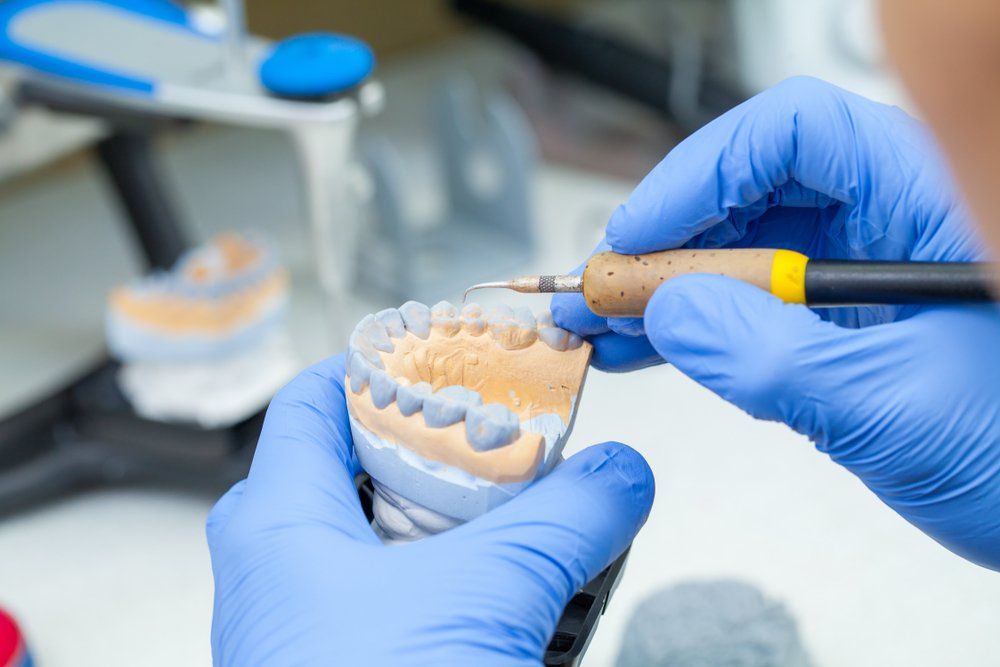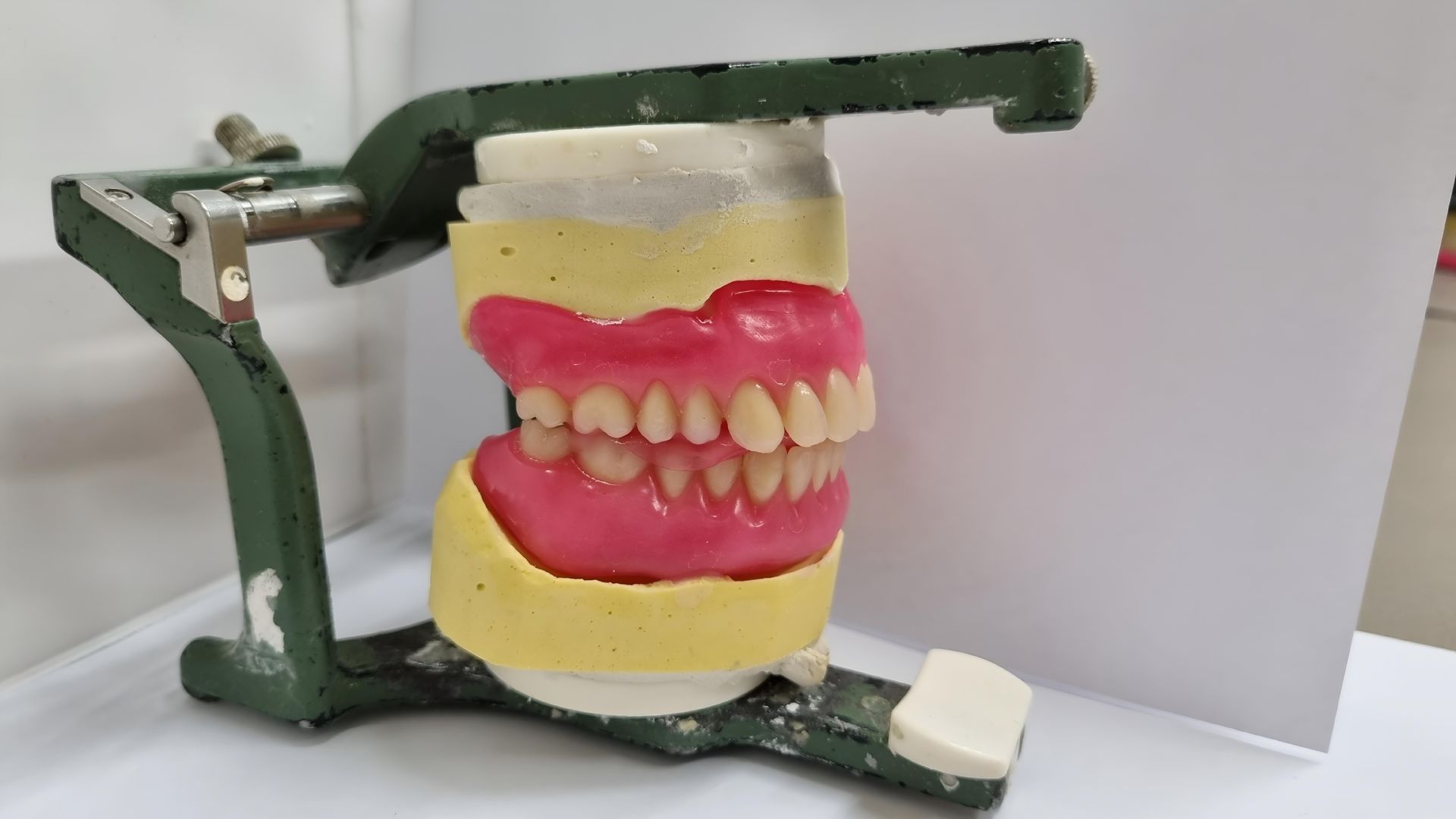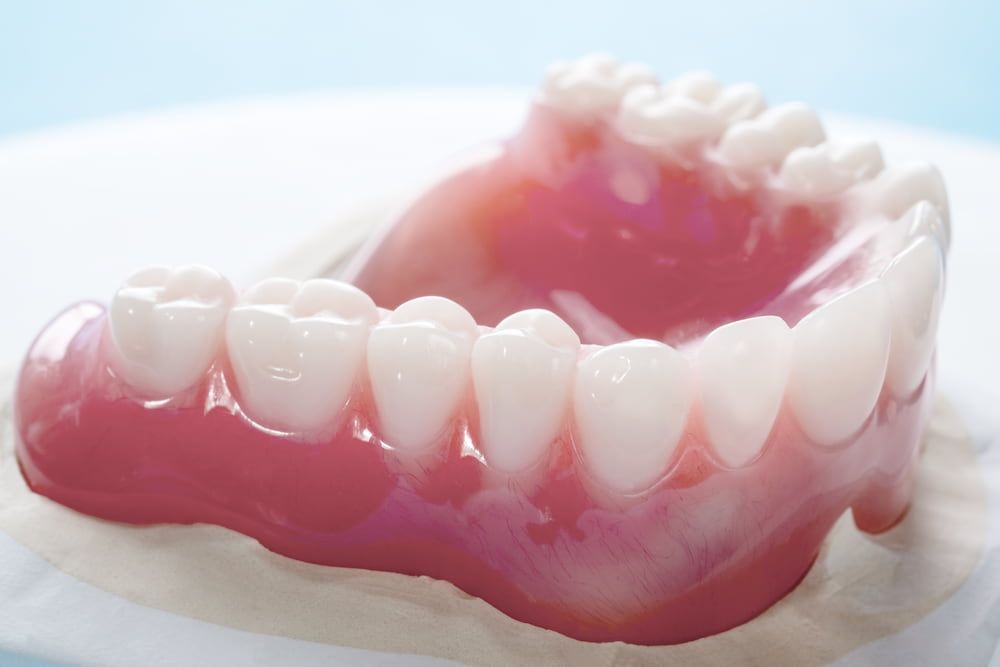Why You Need To Consider A Denture Reline Procedure?
If you're a denture wearer, it could be time for a denture reline. If you've not heard of this procedure before, read on to discover what it is, when you might need it and the benefits a skilled denture reline procedure might bring. We also discuss the various types of reline options, as well as consider the cost of an appropriate reline.
WHAT DOES A DENTURE RELINE MEAN?
Over time, once a tooth has been removed, the tissue at the site of the extraction changes shape. Inevitably, this means that a denture plate that is fitted well shortly after the extraction site healed will no longer have the same snug fit as time goes on.
As the name suggests, a denture reline involves putting a fresh lining inside the denture plate that's been shaped to fit the present contours of your gums.
WHEN DO YOU NEED A DENTURE RELINE?
It's usual for a reline to be required six to 12 months after the extractions and then every five to ten years, depending on the individual. Where the gum shape changes rapidly, more frequent relines may be needed. Relines are essential to ensure that the denture continues to fit correctly.
If you notice that your dentures are beginning to rub, or find that eating is becoming more of a challenge, a reline could be the solution.
WHY IS IT IMPORTANT TO RELINE YOUR DENTURES?
Incorrectly fitting dentures don't just make speaking and eating more difficult, they can also cause gum chaffing, leading to discomfort and even the development of sores and loss of gum tissue. Some people with poorly fitting dentures may also experience headaches, jaw aches or bacterial infections.
WHAT ARE THE BENEFITS OF A DENTURE RELINE?
A denture reline results in a well-fitting cushion between the dental plate and the gum. This ensures the dentures are comfortable to wear and that they're positioned to make eating and speaking as straightforward as possible.
HOW MUCH DOES IT COST TO RELINE DENTURES?
Costs vary depending on the type of reline, gum condition, size of the denture and how many appointments are necessary.
TYPES OF DENTURE RELINE
There are three main types of dental reline - hard, soft or temporary.
1. TEMPORARY RELINE
If the gums are badly swollen and sore, it's no use taking an impression for a fresh reline, as it won't be accurate. To solve this problem, the dentist provides a medical reline that's formulated to reduce swelling and promote healing. Once healing has occurred, the patient will usually return to the dentist to have a hard or soft reline fitted.
2. HARD RELINE
Your dentist will remove some of the plastic inside the denture and replace it with putty. Patients will then make an impression in the putty. Where necessary, the dentist will then replace the putty with acrylic. The result is a surface that's perfectly aligned with your gum profile.
3. SOFT RELINE
Designed for people who find dentures tricky to wear, a soft reline involves lining the denture with a pliable, spongy material. This increases their comfort and performance.
CONTACT US
For more information about denture reline procedures, call the team at the Denture Care Group - Sunshine Coast on 07 5491 2288.







